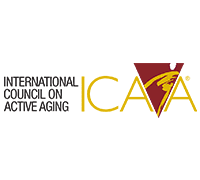The San Antonio Hormone Replacement Therapy Center helps women find relief from the uncomfortable symptoms of hormonal imbalances.
Women often enjoy great health up until they enter the perimenopausal stage in their mid-to-late 40s. Typically, this stage lasts about four years and marks the beginning of a new era as a woman enters menopause. It’s characterized by plummeting levels of two crucial sex hormones — estrogen and progesterone.
Due to their primary role in a woman’s health and wellness, dropping hormonal levels triggers a slew of uncomfortable and challenging symptoms. Doctors often prescribe hormone replacement therapy to ease these symptoms and help women regain their health and vitality.
Estrogen and Progesterone Imbalances in Women
Estrogen and progesterone imbalances are more profound in women between 45 and 55 years as they transition through menopause. During this transition, a woman’s reproductive system is gradually shutting down. The ovaries dry up and cease producing estrogen and progesterone hormones.
Besides keeping a woman’s reproductive system healthy, these sex hormones also play a crucial role in her overall health, such as maintaining bone health and density. The waning levels trigger uncomfortable emotional and physiological changes in women. Doctors prescribe HRT to help ease the symptoms and provide relief.
Estrogen Imbalances
While most noticeable variations happen during menopause, estrogen variations happen throughout a woman’s life. Factors driving these variations include obesity, pregnancy, hereditary conditions, and lifestyle diseases such as diabetes and high blood pressure.
Symptoms of estrogen deficiency include:
- Vaginal dryness
- Irregular periods
- Night sweats
- Nonmalignant breast lumps
- Low libido
- Dry skin
- Weight gain
Progesterone Imbalances
Besides menopause, a miscarriage, aging, and ovary infections may cause lower levels of progesterone levels in the body.
Symptoms of low progesterone include:
- Headaches and migraines
- Tender breasts
- Low libido
- Vaginal dryness
- Abdominal pains
- Loss of lean muscle mass
What is Hormone Replacement Therapy (HRT)?
Hormone replacement therapy is a medical treatment to help women counter the effects of hormonal imbalances. It entails administering exogenous estrogen and progesterone to supplement declining hormone levels. The intervention helps ease the symptoms of menopause and other hormone-related conditions.
HRT helps to lower a woman’s susceptibility to health issues that are triggered by waning estrogen and progesterone levels in the body. The treatment is commonly associated with menopause due to the sharp decline but can help address hormonal imbalances in all women.
Types of Hormone Replacement Therapy?
Women have three options when it comes to HRT, and doctors prescribe a modality that suits their circumstances and needs.
- Estrogen-only therapy (ET): This modality is reserved for women who’ve undergone hysterectomy as they’re not susceptible to estrogen’s effect on the endometrium. Without progesterone, estrogen may cause cell overgrowth in the uterus lining.
- Progesterone-only therapy (PT): Doctors recommend PT to women whose wombs are intact but don’t require exogenous estrogen. Or in cases where estrogen is contraindicated, such as when a woman has a history of estrogen-sensitive cancer.
- Combined estrogen-progesterone therapy (EPT): Doctors prescribe EPT to help women with intact wombs combat hormonal imbalances. Progesterone counters the potential thickening of the uterus lining, lowering the risk of uterine cancer.
Estrogen is available as oral tablets, pellet implants, transdermal patches, vaginal rings and creams, topical creams, sprays, and gels. Progesterone is available as releasing coils, tablets, or combined with estrogen as tablets or skin patches.
Uses of Hormone Replacement Therapy
Hormone replacement therapy has many use cases that help women safeguard their health and improve their quality of life. Common use cases include:
- Easing menopause symptoms: Women experience hot flashes, night sweats, and vaginal dryness due to waning estrogen levels. HRT helps restore hormonal balance, reducing the intensity and frequency of these symptoms.
- Protecting bone health: Low estrogen levels can lead to osteoporosis — bone loss — leaving women susceptible to fractures. HRT increases estrogen levels in the body and consequently improves bone health and density.
- Preventing heart conditions: Women with early onset menopause — undergo menopause before they’re 40 years old — are susceptible to coronary heart disease. HRT helps boost estrogen levels and lowers the chances of developing a heart condition.
- Gender-affirmation therapy: Patients undergoing gender reassignment surgery can use HRT to affirm their preferred gender. The therapy helps boost the levels of female hormones in the body.
- Preventing muscle loss: Sarcopenia, an age-driven loss of muscle and strength, is common in men and women. HRT helps women maintain their muscle mass and retain their strength.
- Preventing dementia: Research indicates that estrogen therapy may decrease susceptibility to Alzheimer’s and Parkinson’s diseases. Alzheimer’s disease is a major health concern and the leading cause of dementia in America.
Benefits of Hormone Replacement Therapy
Women who turn to HRT find relief from symptoms associated with low estrogen and progesterone levels. HRT benefits include:
- Easing symptoms of menopause
- Improved bone health and lower risk of bone fractures
- Enhanced sex drive and sexual function
- Increased muscle mass and strength
- Improved cardiovascular health
- Lowered susceptibility to dementia
- Protection against colorectal cancer
Common HRT Risks and Side Effects
Like most medical treatments, HRT may pose some risks and potential side effects.
HRT Risks
Long-term HRT treatment, over seven years, is associated with some health risks such as:
- Breast cancer
- Stroke
- Blood clots in the lungs or legs
- Heart attacks
HRT Side Effects
Common HRT side effects may include:
- Mood swings
- Breast tenderness
- Unusual vaginal bleeding
- Nausea
- Indigestion
Consulting a physician can help minimize the side effects as they vary depending on the method of HRT administration.
HRT in San Antonio with PeakPerforMAX
PeakPerfoMAX is your go-to option when you need effective hormone replacement therapy in San Antonio. Our San Antonio Hormone Replacement Therapy Center provides exemplary HRT services customized to your needs and lifestyle. We provide customized treatment plans to help you take charge and improve your life from the comfort of your home.
Is HRT right for you? The San Antonio HRT Center specialists can help you make an informed choice.
Book a session and speak to a specialist at PeakPerfoMAX today!













